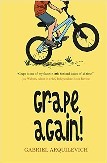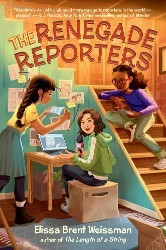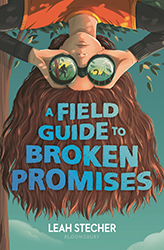Mason is an unhappy middle-school student living in New York City in 2023. When his therapist, Barb, suggests that he compose a letter to anyone of his choice, without having to send it, he is skeptical that this exercise will improve his mood. When he does decide on Albert Einstein as the recipient of the note, he later has second thoughts. But the letter, tossed in his closet, has disappeared. Given Einstein’s research into wormholes in space-time, it makes sense when a girl named Talia receives it instead of the renowned scientist. She lives in Pennsylvania, in 1987. Also struggling with personal issues, as well as blatant antisemitism, Talia is soon exchanging meaningful conversations with someone who uses strangely foreign terms, like “google,” and mentions listening to music on his phone. An epistolary friendship develops that allows both Mason and Talia to transcend limits of time and space, and to figure out some problems that each of them confronts.
The adults in Mason and Talia’s lives are largely well-intentioned, but their efforts to offer support are often inadequate. Mason’s absent father is hoping to build his career, but meanwhile, his absence has left a painful gap in his family’s life. Mason’s mother has an exhausting work schedule, and her apparent reliance on alcohol is frightening to him. Talia’s more typical problem of a best friend’s abandonment elicits the obtuse remark from her father that “sometimes differences are what make a friendship special.” Worse, when Talia reports persistent antisemitic bullying at school, her parents seem ill-equipped to deal with the reality, assuming that discussing the problem with the administration will bring a quick resolution. Mackler does not minimize the hatred motivating some of Talia’s schoolmates, presenting it as psychologically menacing. Her teacher and principal are callously indifferent, at best, sending the message that they are not only unable to help, but may actually share the prejudices of their students.
Given the limitations of their respective families, the strong connection between Mason and Talia develops and strengthens. Using time travel as a narrative device holds risks; the mechanism can easily become a pretext for simplistic fantasy.But in Right Back At You, the differences between the protagonists’ times and locations provide opportunities for enlightening contrasts. In addition to antisemitism, Talia is subjected to sexism, especially in her determination to excel at sports. Her school’s coach embodies attitudes that certainly continue in 2023, but are no longer viewed as the norm. Mason is taken aback by her experience, which seems almost as antique as the Walkman that her brother refuses to share. The friends also grapple with the moral implications of time travel if they were to use knowledge of future events to affect outcomes.
Adolescence is difficult enough without a misdirected letter to Albert Einstein forcing two lonely kids to transcend time and space. However, this accident becomes an opportunity as the two help one another to move forward toward their respective futures.
Emily Schneider writes about literature, feminism, and culture for Tablet, The Forward, The Horn Book, and other publications, and writes about children’s books on her blog. She has a Ph.D. in Romance Languages and Literatures.





